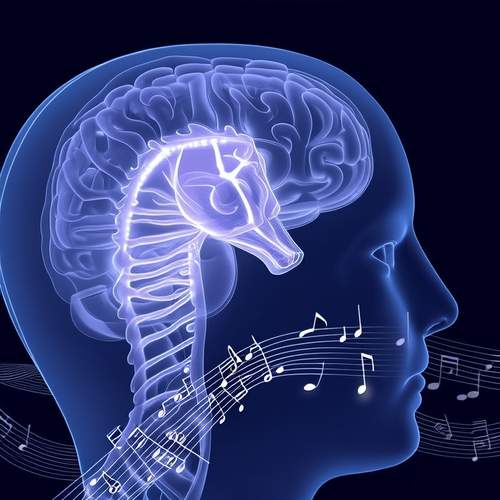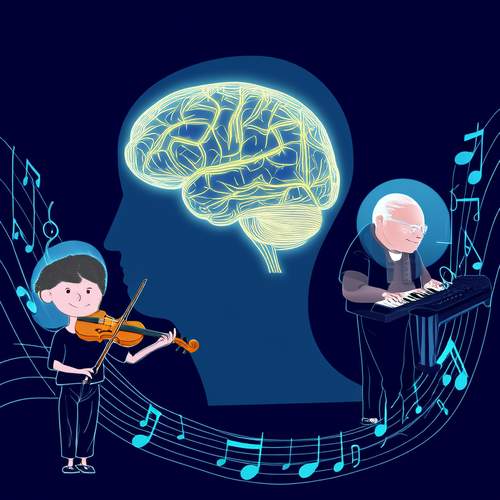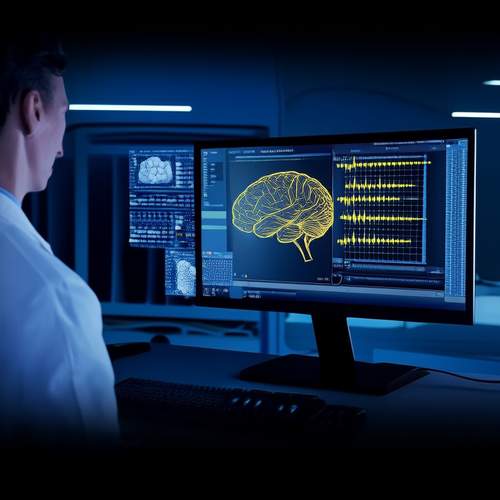Music Therapy for Alzheimer's Disease: A Melodic Approach to Memory
The soft strains of a familiar melody drift through the room, and something remarkable happens. A woman who hasn't spoken in months begins humming along, her fingers tapping rhythmically on the armrest. Her eyes, usually clouded with confusion, suddenly spark with recognition. This is the power of music therapy in Alzheimer's disease - a non-pharmacological intervention that's gaining increasing attention in neurological care circles worldwide.
Alzheimer's disease, the most common form of dementia, progressively erodes memory and cognitive function. As the condition advances, patients often lose the ability to recognize loved ones, communicate effectively, or perform basic daily tasks. Traditional treatments focus on slowing cognitive decline, but music therapy offers something different - a way to access preserved memories and emotions that often remain intact even as other mental faculties deteriorate.
The Science Behind the Sound
Neurological research reveals that music activates multiple areas of the brain simultaneously. Unlike language, which primarily engages localized regions, musical processing involves widespread neural networks including those responsible for memory, emotion, and motor control. This explains why Alzheimer's patients who struggle to form complete sentences can often sing entire songs from their youth without missing a word.
Brain imaging studies show that familiar music stimulates the medial prefrontal cortex, one of the last brain regions to atrophy in Alzheimer's progression. This area serves as a hub for autobiographical memories and emotional associations. When activated through music, it can trigger vivid recollections and emotional responses that other stimuli cannot access. The rhythmic elements of music also engage the cerebellum and basal ganglia, helping to improve motor coordination in patients.
Clinical Applications in Care Settings
In memory care facilities, music therapists employ various techniques tailored to individual needs. Receptive methods involve playing carefully selected music to evoke memories or calm agitation. Active approaches encourage patients to play simple instruments, sing, or move to music. These sessions often yield immediate observable benefits - reduced anxiety, improved mood, enhanced social interaction, and sometimes even temporary cognitive clarity.
Caregivers report that music therapy helps manage some of Alzheimer's most challenging behavioral symptoms. Sundowning - the increased confusion and agitation many patients experience in late afternoon - often diminishes when accompanied by soothing music. Mealtime becomes less stressful with background music, leading to better nutrition. Even bathing, typically a source of distress, becomes more tolerable when set to familiar tunes.
Personalized Playlists and Memory Triggers
The most effective musical interventions are highly personalized. Therapists work with families to identify songs that held significance during the patient's formative years, typically between ages 10 and 30. This period represents the "reminiscence bump" when musical preferences become deeply encoded in long-term memory. A 2018 study demonstrated that personalized playlists could reduce medication needs by up to 30% in some dementia patients.
Technology has expanded access to music therapy through programs like Music & Memory, which provides dementia patients with iPods containing customized playlists. Simple interventions like these often produce profound results. One nursing home reported a 60% reduction in antipsychotic medication use after implementing a music program. Patients previously withdrawn and uncommunicative began singing, dancing, and reconnecting with caregivers and family members.
Beyond Symptom Management: Quality of Life Enhancement
While music therapy doesn't halt neurodegeneration, its value lies in dramatically improving quality of life for both patients and caregivers. Shared musical experiences create moments of connection when verbal communication fails. Families discover new ways to bond with loved ones who no longer recognize them. The emotional resonance of music often bridges the gap created by cognitive decline.
Therapeutic benefits extend beyond the immediate session. Many patients exhibit improved sleep patterns and reduced wandering behaviors after regular music therapy. Some demonstrate enhanced verbal fluency and conversational ability. Perhaps most importantly, music provides Alzheimer's patients with a means of self-expression when other avenues have closed - a way to communicate joy, sadness, or comfort without needing words.
Implementing Music Therapy: Practical Considerations
Effective music therapy requires more than simply playing old songs. Volume, tempo, and lyrical content all influence outcomes. Upbeat music may energize patients during daytime but prove overstimulating at bedtime. Songs with complex lyrics might frustrate those with language deficits, while simple, repetitive melodies often work best. Therapists carefully monitor physiological responses like breathing rate and facial expressions to gauge reactions in nonverbal patients.
Caregivers can incorporate musical elements into daily routines without formal training. Humming while assisting with dressing, playing background music during meals, or gently swaying to music with patients all provide therapeutic benefits. The key lies in observation - noticing which songs elicit positive responses and which cause distress or overstimulation.
The Future of Musical Interventions
Research continues to explore music's potential in Alzheimer's care. Studies investigate whether early, regular musical engagement might build cognitive reserve that delays symptom onset. Other trials examine how combining music with physical therapy might improve mobility. Emerging technologies like EEG headbands that detect brainwave responses to music could lead to more personalized treatment approaches.
As populations age globally, non-drug therapies like music will play an increasingly vital role in dementia care. Unlike pharmaceuticals that often carry significant side effects, music therapy presents minimal risks while offering substantial benefits. Healthcare systems worldwide are beginning to recognize its value - some European countries now include music therapy in standard dementia care protocols.
The poignant reality of Alzheimer's is that while the disease steals memories, it often leaves the ability to appreciate music remarkably intact. In the fragmented landscape of dementia, music provides islands of clarity and connection. For patients drifting in the fog of cognitive decline, familiar melodies serve as anchors to their personal histories and identities. As research progresses, music therapy may well become not just a complementary treatment, but a fundamental component of compassionate Alzheimer's care.

By /May 30, 2025

By /May 30, 2025

By /May 30, 2025

By /May 30, 2025

By /May 30, 2025

By /May 30, 2025

By /May 30, 2025

By /May 30, 2025

By /May 30, 2025

By /May 30, 2025

By /May 30, 2025

By /May 30, 2025

By /May 30, 2025

By /May 30, 2025

By /May 30, 2025

By /May 30, 2025

By /May 30, 2025

By /May 30, 2025

By /May 30, 2025